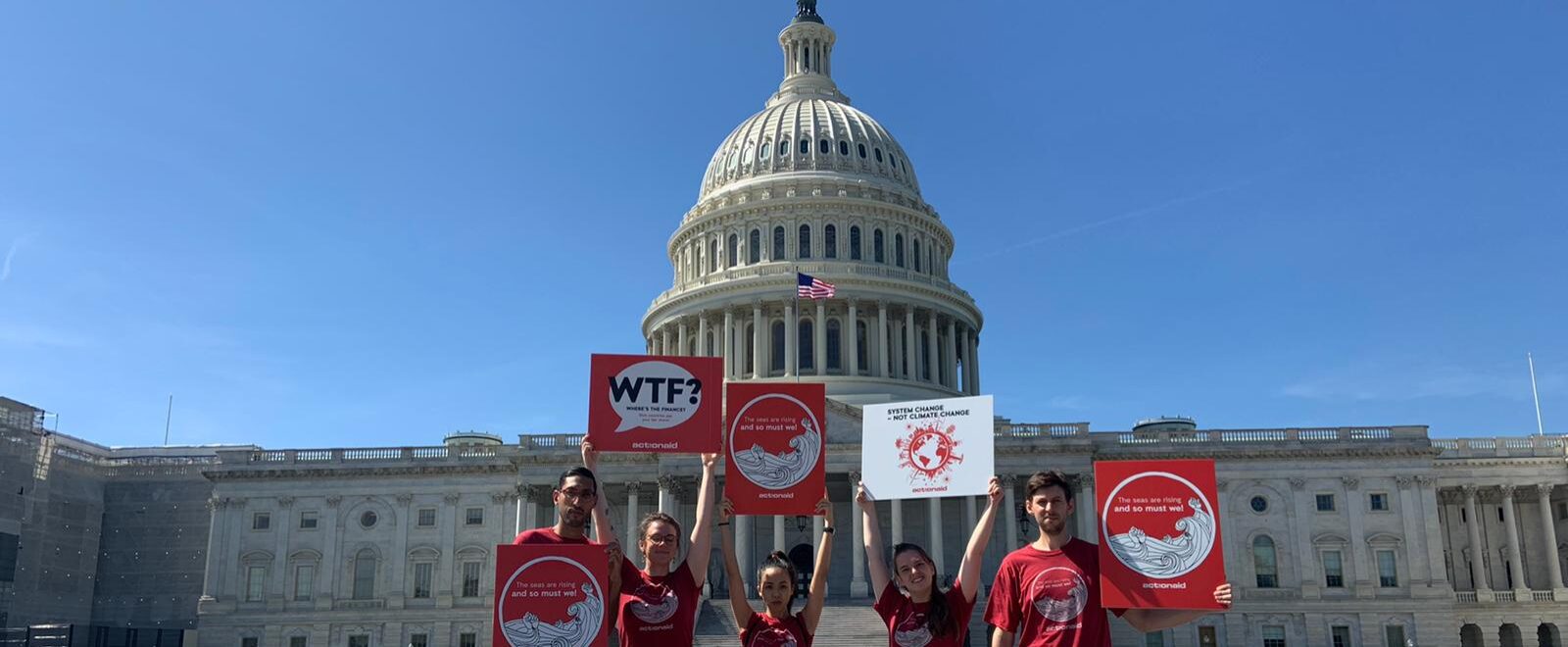The Biden administration released the President’s Budget for fiscal year 2022. ActionAid USA issues the following reactions:
On climate finance
The Biden administration’s $1.25 billion request for the Green Climate Fund (GCF) is a welcome step that recommits the United States to multilateral climate finance, but it needs to be three times bigger. At least 90 members of Congress agree, having signed a letter last month to House appropriators calling for $4 billion for the GCF.
The President’s $1.25 billion request would not even cover the outstanding $2 billion balance that the United States already owes the GCF, from the Obama administration’s initial pledge in 2014. In addition to paying this balance, we call on the Biden administration to make a new pledge of at least $6 billion to the GCF’s current replenishment period, which would bring the United States in line with other contributor countries. A $4 billion appropriation for the GCF in FY22 would cover the outstanding amount from the Obama pledge and a first installment of a new $6 billion pledge.
All of this is only a first step towards meeting the full U.S. fair share of climate finance. Recently, ActionAid USA joined a group of organizations and members of Congress to urge the administration to commit to $800 billion in climate finance by 2030, as a down payment on that fair share. The GCF appropriation is one piece of this much larger puzzle.
The President’s Budget does include $100 million for “international climate adaptation programs,” which is encouraging, as this money will have direct and material impacts on the lives of the most vulnerable communities around the world. But the President’s Budget is not specific about where this money will go. We urge that it be contributed to the Adaptation Fund under the Paris Agreement, a highly innovative and effective fund directly serving the needs of frontline, climate-impacted communities in the Global South.
Finally, the President’s Budget includes $300 million for the World Bank Climate Investment Funds (CIFs). The CIFs have proven weaknesses, and were only ever meant to be a stopgap measure until a permanent, independent fund – the GCF – was established and operational. Many organizations from Global South, as well ActionAid and many of our allies in the Global North, have called for the closure of the CIFs. Congress should not direct any the funds to the CIFs, and should supplement the U.S. contribution to the GCF instead.
On agricultural development
We regret that the Biden Administration’s budget request does not include new funding for the Global Agriculture and Food Security Program (GAFSP).

The Biden Administration is underestimating the urgent need to support agricultural development in the face of looming food security challenges. Increasing support for agricultural development would allow countries to cope with the hunger and climate crises exacerbated by the Covid-19 pandemic.
The United States was instrumental in creating GAFSP under President Obama and has helped leverage other donors. In 2020, GAFSP launched a new replenishment period with the aim of raising $1.5 billion between 2020 and 2025 to respond to new challenges to agriculture development in the face of climate change and the Covid-19 crisis. The Trump Administration refused to contribute, but Germany, Spain, Australia, Norway, and the Gates Foundation committed nearly $300 million. President Biden should rejoin this cooperative effort.
With 690 million people still suffering from hunger, 2 billion people food insecure, and 34 million people on the brink of famine, investment in smallholder farmers is essential to efforts to end hunger and reduce poverty.
We urge the Biden Administration to reconsider this decision, and we will be asking Congress to provide new funding to replenish GAFSP.


